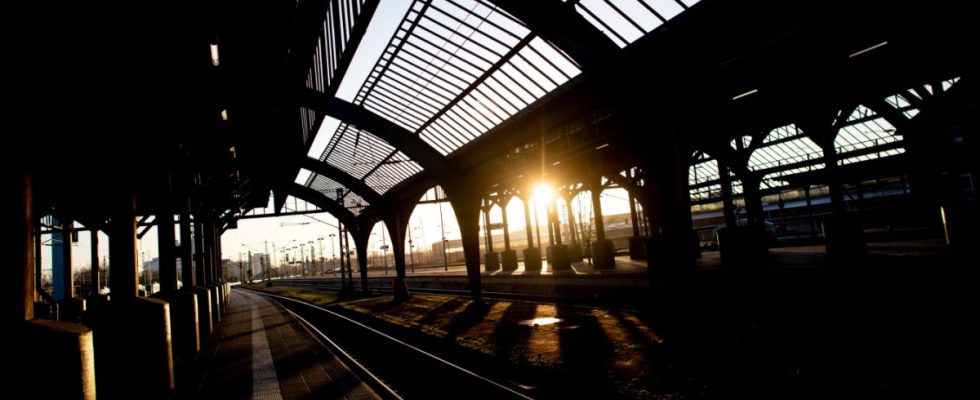The strike by the train drivers’ union GDL was actually supposed to last until Monday evening at 6 p.m. But now it will be shortened: the train drivers, train attendants and other railway employees should return to work SZ– Information will be available again from Monday morning at 2 a.m.
The background is that after unofficial discussions between the GDL and the railway management there was a cautious approach. After months in which hardly anything moved in the collective bargaining dispute – apart from the GDL calling for several violent strikes – both sides are resuming negotiations.
A peace obligation should apply until the beginning of March
There should be intensive discussions until March 3rd. There should also be a peace obligation during this time. This means that further strikes are not possible during this time. The train drivers’ union has called for strikes four times in the current collective bargaining round, one day each in November and December; in January there was a three-day industrial action and the current industrial action, which was originally scheduled to last six days. The freight transport strike is also scheduled to end earlier, on Sunday evening at 6 p.m.
The biggest point of contention in collective bargaining so far has been the reduction in weekly working hours from 38 to 35 hours for train drivers and other shift workers. The GDL wants to implement it with full wage compensation. The railway has so far rejected this, but has recently shown itself open to talking about a 37-hour week and at least partial wage compensation. But that hasn’t been enough for the GDL to resume talks.
Her boss Claus Weselsky demanded that the railway make a better offer to the union. The railway must be prepared to gradually introduce the 35-hour week for all train drivers and other shift workers by 2028. There should also be a salary increase of at least 420 euros and an inflation compensation bonus of 3,000 euros. This is what it says in an agreement proposal that the GDL recently sent to the railway.
Another topic of conflict: The GDL wants to negotiate a collective agreement not only for train drivers and the traveling staff, but also for the employees of the so-called infrastructure, for example for the dispatchers. She would like to gain more members there. The railway, in turn, argues that the union has no power of representation in this part of the workforce, so it does not organize a relevant number of employees there, unlike the competing union EVG. Therefore, collective bargaining in this sector with the GDL is pointless. There was probably at least a cautious approach to this point of contention.
Even if the strike ends early, there are still likely to be irregularities in train traffic on Monday. This is because complex rail operations need time to be fully up and running again after a strike.

